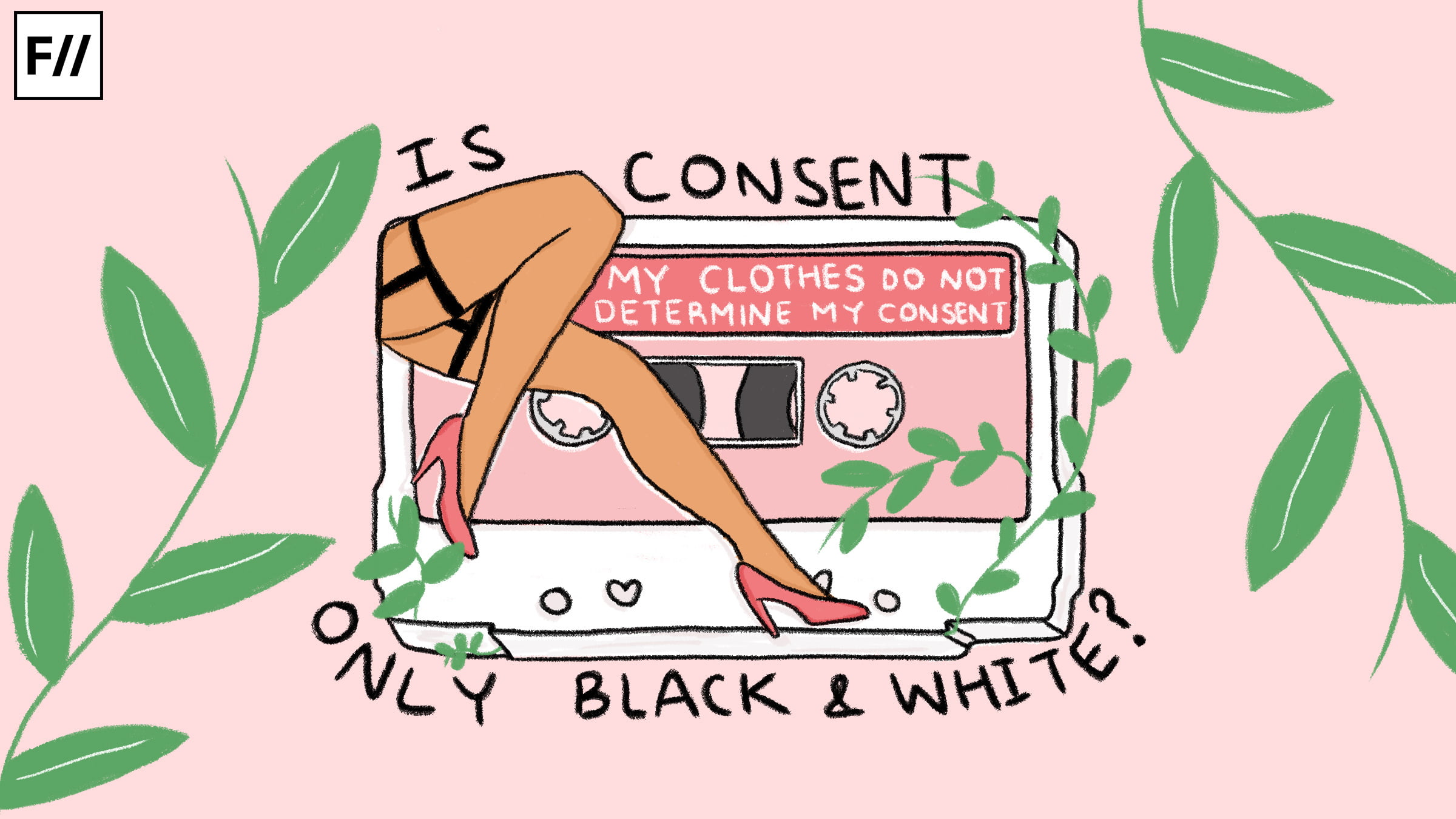According to the Cambridge Dictionary, consent as a verb is defined as “to agree something, or to allow someone to do something.” With the intersection of the Internet and the feminism movement, the stress on “consent” has time and again been laid down with social media hashtag like #NoMeansNo, for instance.
To elaborate on the relevance of this word in the context of sexual harassment and rape cases simply, consent stresses on the fact that one of the parties involved in an encounter of sexual nature hasn’t agreed to it. To further simplify it, it puts the onus of the act of sexual harassment or rape on the perpetrator who chose to go ahead with the act even after the other person has rejected their advances or asked them to stop. The idea around sexual harassment and rape culture has always been to put the onus on the victim, and this one word sets out to change the power structure prevalent in the society where questions like what were they wearing or what time of the day it was become more focused than whether or not they wanted to be involved in the act.
It is clear that any sexual act that has been committed without the permission of one of the parties involved becomes a case of sexual assault. But does consent only mean a concrete yes or can it also exist in a grey area especially when it’s violated by a person we trust?
Also read: How Do Women With Disabilities Understand, Express And Interpret Consent?
When one looks at it from this perspective, it becomes clear that any sexual act that has been committed without the permission of one of the parties involved becomes a case of sexual assault. But does consent only mean a concrete yes or can it also exist in a grey area especially when it’s violated by a person we trust?
To answer this, I would like to draw upon two different incidents of my life, having happened within a span of 6 months from each other. In the summer of 2014, I had shifted to a city, from a small town. Up until then, I had not experienced sexual harassment. But that soon changed. The house that I lodged in, had three other roommates, and one day it happened. Completely out of the blue, my landlord arrived at the house, while my roommates were away, and began making sexual advances. Although my body froze, and my mind went blank in the moment that it was happening, my body recognised it as assault. My body had recognised the non-consensual touch and somehow I had maneuvered my way out of that threatening situation. Consent was white and black in that incident, and I immediately identified him as a sexual offender.
The next incident happened later that year. My then partner and I had decided to go out. He took me to a secluded restaurant under the pretext of having a conversation, and while we waited for our food to arrive, he began touching me. Prior to this, I had had no experience of a physical relationship. I had tried stopping his hands from touching me, but my tongue had frozen. My body had protested against it but he kept assuring me that this was normal. With tears in my eyes I had shrugged his hands off me, but he had continued. I was unable to shout a concrete NO at him. The pleas to stop were meek and feeble. My body knew it was being violated, but my brain suppressed the memory. For years I failed to recognise this as sexual harassment. For years I befooled myself thinking that it was mutual because didn’t I agreed to go out with him? Didn’t I not say NO to him? But today, in 2020, my body recognises it as sexual harassment. The memories of that night that I had suppressed have come flooding down all at once, and it recognises that even if I hadn’t pushed him away or screamed a NO at him, he violated me without my consent.
Is consent simply a matter of yes or no? All those times, when we don’t recognise it as harassment because we are blinded by our emotions, aren’t they sexual harassment as well? And what does one do in such situations? Consent is not that simple when the person violating us is someone we trust, someone who makes us believe that they will never harm us.
Also read: #JustNotInterested: Understanding Consent, Disinterest And Expectations

So then, is consent simply a matter of yes or no? All those times, when we don’t recognise it as harassment because we are blinded by our emotions, aren’t they sexual harassment as well? And what does one do in such situations? Consent is not that simple when the person violating us is someone we trust, someone who makes us believe that they will never harm us. Do I call myself a fool for consenting to go out with my then partner and trusting him, and end up getting harassed, or do I pat myself for recognising the non-consensual touch of my then landlord, and for being smart enough to have protected myself? Then, is consent really black and white?
Neha Agarwala is a student of M.A in English under Calcutta University. She aspires to be an academician, and a writer. She can be found on Twitter and Instagram.
Featured Image Source: Shreya Tingal/Feminism In India




